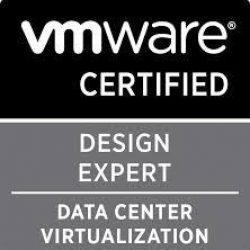The journey to VCDX presentation is definitely a long and arduous one, I went through the experience once and did not pass my first attempt at VCDX. It was one of those moments where you look back on what you could have done better.
For me I knew my design was not at the level I hoped it would be and not only my VCDX presentation but the way I presented was not helping me.
Getting to the presentation
I worked with my VCDX mentor (Josh Odgers VCDX #90), if you know Josh he is a straight shooter, and an excellent coach and assisted me in going through my feedback from my first attempt. I definitely would not have achieved my successful attempt without his assistance. He also spends a vast amount of his own time helping out other hopeful VCDX’s, taking part in mock panels and providing constructive feedback.
For the second attempt, I made substantial changes to my design document, particularly in the storage area. I also made sure that there was clear linkage between my requirements and my design decisions, this is particularly important to provide the reviewer with an easy way of understanding why certain decisions were made.
I submitted my design and was received my acceptance to defend in Singapore on July 9th 2014. This time I knew what to expect and I knuckled down reviewed my design and how to present it.
Preparing the Presentation Itself
So your tired you have entered your design, and all you want to do is take a break, that is probably a good idea, but I recommend not making it more than a day or two. If you are like me your brain will go “I have four weeks and I can’t stop thinking about this anyway!” Its time to dive into writing that presentation, assume that you are going to be accepted and use the time wisely, even if you are not, you have not wasted your time, all thinking towards the defence is useful thinking.
Make sure that you get your design reviewed thoroughly with feedback, but multiple people if possible. Ideally that person should review it against the VMware VCDX blueprint rubric, encompassing AMPRS (remember I am not a panelist and I do not have any insight into how the defence is scored).
Also review your design again also against the rubric. I created a spreadsheet which had a column split across AMPRS and the top row across each vSphere (all outlined in the blueprint PDF). In this spreadsheet I plotted my design against the break down of each area, this gave me 127 different items that I knew I needed to touch to have a chance of being successful.
This spreadsheet then guided my build out of the presentation. In PowerPoint I made a point of choosing a clean template to use, with consistent formatting (this is important) and created my 12 slide presentation. This has been documented before, but this is when you need to find a system that works for you in your presentations, one piece of advice given to me is that you should be able to give your presentation without your deck, calmly and comfortably, all diagrams should be able to be produced on the whiteboard. Remember, you must know all aspects of the design, including Network & Storage!
I also took part in a couple of mock defence panels, the feedback for me was around my confidence, I was not confident in what I was saying even though I knew it inside and out. That was a tricky one to solve, but it is all about mental attitude.
The Actual Defence
I have blogged about my experience, and the main thing for me was overcoming my lack of confidence, I just remember sitting outside the room waiting to go in and repeating in my head, be calm and confident and just relax and enjoy. Its funny because that worked for me. I will not go into the details of what happened in the room, other than to say the whole thing felt really good, I felt prepared and confident.
After the VCDX
I had a holiday with my family, we took a trip up to Northern Queensland, to get away from the Melbourne winter and relax. Its now nearly 6 weeks later and I am thinking that I am really interested in the VCDX-NV (I work for a Telco and networking is massively important piece of what we do). Next year I have signed up to start my Masters, so studying seems to be in my blood. When you think about it in IT, it is always about continuous improvement. Gaining the VCDX has been part of that journey for knowledge.
I really want to help anyone else who is thinking of going through this journey, please contact me at twitter if you would like any assistance at @sidbrydon.
Thanks and good luck!


